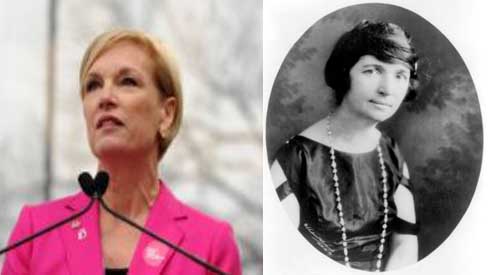As president of Planned Parenthood during its 100th anniversary in 2016, Cecile Richards had much to celebrate. Planned Parenthood consistently pulls in more than one billion dollars in revenue every year, and the organization had millions signed up as volunteer advocates. A charismatic leader and an expert media spokesperson, Cecile has also spent much of her tenure using those skills to help steer Planned Parenthood through several high-profile scandals.
During her time at the organization, Cecile was called on multiple times to defend Planned Parenthood after allegations surfaced of illegal activity within her organization, including reports of clinic workers ignoring potential statutory rape cases. In 2015, Planned Parenthood faced its biggest challenge in recent years when videos surfaced of clinic administrators and executives — apparently — illegally haggling over the price of aborted preborn baby parts for medical research. As a result of the videos, there was a congressional enquiry and late in 2017 the U.S. Department of Justice announced it was also investigating Planned Parenthood for alleged illegal activity.
In 2018, Cecile announced that she would resign after 12 years as president of Planned Parenthood. Despite her many scandals, it could be argued that Cecile has been Planned Parenthood’s most effective leader since Margaret Sanger—the organization’s founder. Cecile attracted big donors, celebrity and political endorsements, and maintained a large media and social media presence. Similarly, Sanger was able to gather many advocates to her cause and moved through several influential circles in New York City in the 1910-20’s.
Margaret had her own share of scandals as she became a prominent voice for socially liberal politics. In the early periods of the contraception movement, Margaret was arrested several times and some of her clinics were raided by the police. Margaret even fled the country after she was indicted on obscenity charges to avoid a lengthy imprisonment. She also supported the eugenics movement, a scientific practice dedicated to improving the genetic quality of the population by eliminating people considered “undesirable.” The movement led to forced sterilizations in the United States and the institutionalization of those with special needs. Today, her legacy is one Planned Parenthood celebrates and works to defend.
The lives of Margaret Sanger and Cecile Richards are different, and yet in some ways remarkably similar. Both women have early experience in labor and political organizations, three children, and lived in New York City, but it is through their work with Planned Parenthood that they became powerful voices in the culture. As a result, they have pushed liberal social policies and ideas that have left a legacy of scandal and pain.






